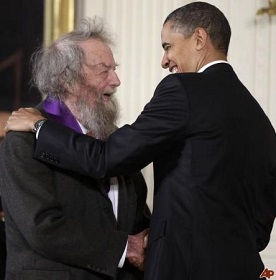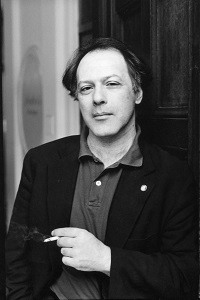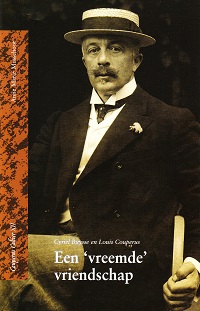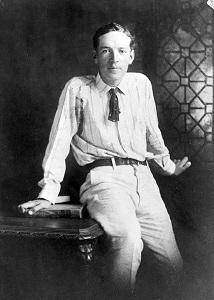De Amerikaanse dichter en schrijver Donald Hall werd geboren in Hamden, New Haven County, Connecticut op 20 september 1928. Zie ook alle tags voor Donald Hall op dit blog.
Safe Seks
If he and she do not know each other, and feel confident
they will not meet again; if he avoids affectionate words;
if she has grown insensible skin under skin; if they desire
only the tribute of another’s cry; if they employ each other
as revenge on old lovers or families of entitlement and steel —
then there will be no betrayals, no letters returned unread,
no frenzy, no hurled words of permanent humiliation,
no trembling days, no vomit at midnight, no repeated
apparition of a body floating face-down at the pond’s edge
The Painted Bed
‘Even when I danced erect
by the Nile’s garden
I constructed Necropolis.
Ten million fellaheen cells
of my body floated stones
to establish a white museum.’
Grisly, foul, and terrific
is the speech of bones,
thighs and arms slackened
into desiccated sacs of flesh
hanging from an armature
where muscle was, and fat.
‘I lie on the painted bed
diminishing, concentrated
on the journey I undertake
to repose without pain
in the palace of darkness,
my body beside your body.’

Donald Hall (Hamden, 20 september 1928)
Hier in 2011 bij de uitreiking van de National Medal of Arts door president Obama
De Spaanse schrijver Javier Marías Franco werd op 20 september 1951 in Madrid geboren. Zie ook mijn blog van 20 september 2010 en eveneens alle tags voor Javier Marías op dit blog.
Uit: A Heart So White (Vertaald door Margaret Jull Costa)
“It’s always the chest of the other person we lean back against for support, we only really feel supported or backed up when, as the latter verb itself indicates, there’s someone behind us, someone we perhaps cannot even see and who covers our back with their chest, so close it almost brushes our back and in the end always does, and at times, that someone places a hand on our shoulder, a hand to calm us and also to hold us. That’s how most married people and most couples sleep or think they sleep, the two turn to the same side when they say goodnight, so that one has his or her back to the other throughout the whole night, when he or she wakes up startled from a nightmare, or is unable to get to sleep, or is suffering from a fever or feels alone and abandoned in the darkness, they have only to turn round and see before them the face of the person protecting them, the person who will let themselves be kissed on any part of the face that is kissable (nose, eyes and mouth; chin, forehead and cheeks, the whole face) or perhaps, half-asleep, will place a hand on their shoulder to calm them, or to hold them, or even to cling to them.”
(…)
“And we offer each other words of consolation or distraction or encouragement when we see that one or the other of us is in need of such words. We also miss each other (vaguely) when we’re not together, she’s one of those people (in everyone’s life there are four or five such people whose loss one truly feels) to whom you’re used to telling everything that happens to you, that is, one of those people you think about when something happens to you, be it funny or dramatic, and for whom you store up events and anecdotes. You accept misfortunes gladly because you know you can tell those five people about them afterwards.”

Javier Marías (Madrid, 20 september 1951)
De Vlaamse schrijver Cyriel Buysse werd geboren op 20 september 1859 in Nevele. Zie ook mijn blog van 20 september 2007. Zie ook mijn blog van 20 september 2010 en eveneens alle tags voor Cyriel Buysse op dit blog.
Uit: De roman van den schaatsenrijder
„Ik wil u een en ander vertellen uit het leven van een schaatsenrijder.
Die schaatsenrijder ben ik.
Ik heb zóóveel, in verschillende landen, op schaatsen gereden, dat het schaatsenrijden in mijn leven een stuk leven op zichzelf geworden is.
Ik herinner mij nog die jonge, sterke jaren mijner jeugd, met die lange, saaie winters buiten, waar het ijs dan eensklaps, als onder de macht eener tooverroede, kleur en fleur en beweging in bracht.
Het was er ineens, na eindelooze dagen van grijze eentonigheid; ineens, op een frisschen, prikkelenden morgen: velden en boomen wit-berijpt, de harde grond klinkend onder de voetstappen, de neusgaten der paarden dampend en de zon die neveligoranje aan den blauw-wazigen einder oprees met korte, gouden stralen, die alom miljoenen en miljoenen diamanten deden fonkelen.
Even buiten ’t dorp, op korten afstand van ons huis, lag de Lusthof. Die Lusthof heette te zijn het zomerverblijf van den dorpsnotaris. ’n Zonderlinge fantaisie! Een villa-achtig gebouwtje in roode steen met châlet-dak, zoo iets als men ziet afgebeeld op goedkoope chromos en prent-briefkaarten. Het lag aan den voorkant langs den trekweg van ’t kanaal en aan de achterzijde grensde het aan een stuk weiland, dat gedeeltelijk tot lusttuintje was ingericht. Er stonden banken, er waren prieëltjes, er lag een vijvertje met roode vischjes en een fonteintje, dat tusschen rotsblokken van sintels opspoot; en op een grasveldje prijkte een groote, glazen bol, waarin de gansche omgeving zich wanstaltig en gedrochtelijk weerkaatste.
De dorpsnotaris, die in het dorp zelf, op nog geen tien minuten afstands, een prachtig oud huis, met een heerlijken, uitgestrekten tuin bewoonde, kwam ’s zomers, op den Lusthof, af en toe enkele uren doorbrengen.“

Cyriel Buysse (20 september 1859 – 25 juli 1932)
Cover
De Amerikaanse schrijver Upton Beall Sinclair werd geboren op 20 september 1878 in Baltimore, Maryland. Zie ook mijn blog van 20 september 2010 en eveneens alle tags voor Upton Sinclair op dit blog.
Uit: The Metropolis
The crash of their volley was blinding–and horses wore fairly shot to fragments; and the Major’s horse, with its lower jaw torn off, had plunged madly away and left its rider hanging in the aforementioned grape-vine. After he had kicked himself loose, it was to find himself in an arena where pain-maddened horses and frenzied men raced about amid a rain of minie-balls and canister. And in this inferno the gallant Major had captured a horse, and rallied the remains of his shattered command, and held the line until help came-and then helped to hold it, all through the afternoon and the twilight and the night, against charge after charge.–And now to stand and gaze at this stout and red-nosed little personage, and realize that these mighty deeds had been his!
Then, even while Montague was returning his hand-clasp and telling him of his pleasure, the Major’s eye caught some one across the room, and he called eagerly, “Colonel Anderson! Colonel Anderson!”
And this was the heroic Jack Anderson! “Parson” Anderson, the men had called him, because he always prayed before everything he did. Prayers at each mess,–a prayer-meeting in the evening,–and then rumour said the Colonel prayed on while his men slept. With his battery of artillery trained to perfection under three years of divine guidance, the gallant Colonel had stood in the line of battle at Cold Harbour–name of frightful memory!–and when the enemy had swarmed out of their intrenchments and swept back the whole line just beyond him, his battery had stood like a cape in a storm-beaten ocean, attacked on two sides at once; and for the half-hour that elapsed before infantry support came up, the Colonel had ridden slowly up and down his line, repeating in calm and godly accents, “Give ‘em hell, boys–give ‘em hell!”–The Colonel’s hand trembled now as he held it out, and his voice was shrill and cracked as he told what pleasure it gave him to meet General Montague’s son.

Upton Sinclair (20 september 1878 – 25 november 1968)
Zie voor nog meer schrijvers van de 20e september ook mijn twee blogs van 20 september 2011.
